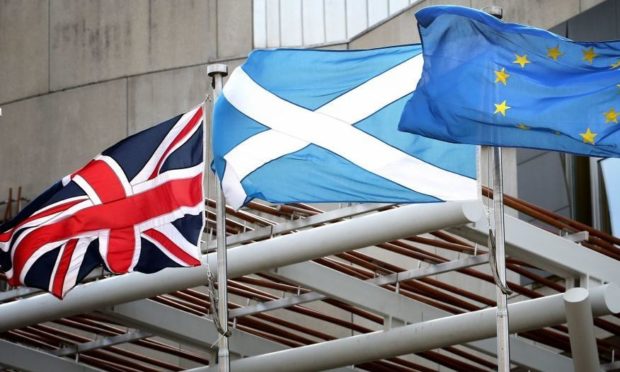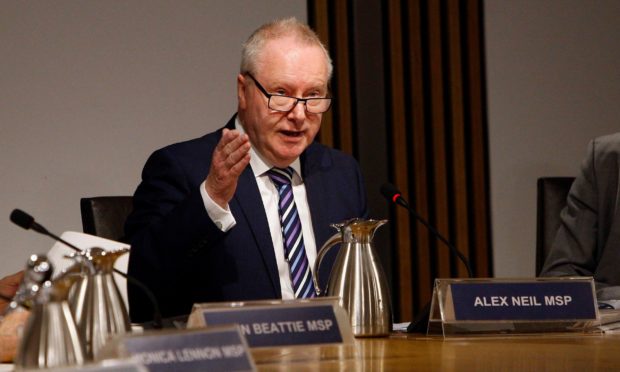A former SNP minister has warned the party’s Sustainable Growth Commission blueprint for independence has been “overtaken by events” in the wake of the coronavirus pandemic and Brexit.
Alex Neil said a team of experts should draft a new economic case for independence and build a “broad consensus” around the plan before a second referendum is held.
The former health secretary was speaking after announcing his plans to step down from Holyrood next year, having served for more than two decades as an MSP.
He has called for the economic case for independence to be “completely rewritten”, including a commitment to join Efta (European Free Trade Association) rather than the EU, and to propose creating a new currency and central bank for Scotland.
The SNP’s Sustainable Growth Commission, led by former MSP Andrew Wilson, was published in May 2018 to set out an economic prospectus for independence, following a row over currency and central bank facilities during the 2014 referendum campaign.
Mr Neil described the report as “like the curate’s egg, it had good bits and bad bits”, but he believed much of it was now out of date, in the wake of the current economic crisis.
“I think a lot of it has now been overtaken by events, particularly with the pandemic and Brexit,” the Airdrie and Shotts MSP said.
“Also, I don’t really think it really answered the central question for the punter who is going to be voting in the independence referendum. That is, ‘where will I and my family get work and get jobs and get money, income, in an independent Scotland? What will be different?’ And I think we’ve got to spell that out, and how we’re going to do it.”
Asked what the process should be for spelling out that message, Mr Neil said: “I think you need to get a team together with the expertise to draft a report, to draft the economic case for independence and update it.
“And that then needs to be widely discussed, not just within the SNP, but widely discussed across Scotland.
“So, before you finalise it as your proposal as part of a second independence referendum, you talk it through with business, with trade unions, with ordinary people, local communities, councils and all the rest of it, so you build a consensus behind it.
“Because one of the important things that other countries have done – the most successful economic countries – is, they build a consensus around how to run the economy.
“And we need to build a broad consensus in Scotland about how best to run an independent Scottish economy.”


